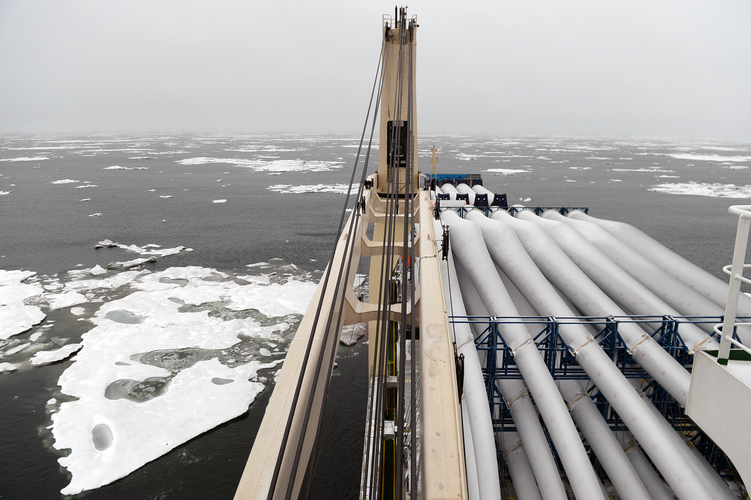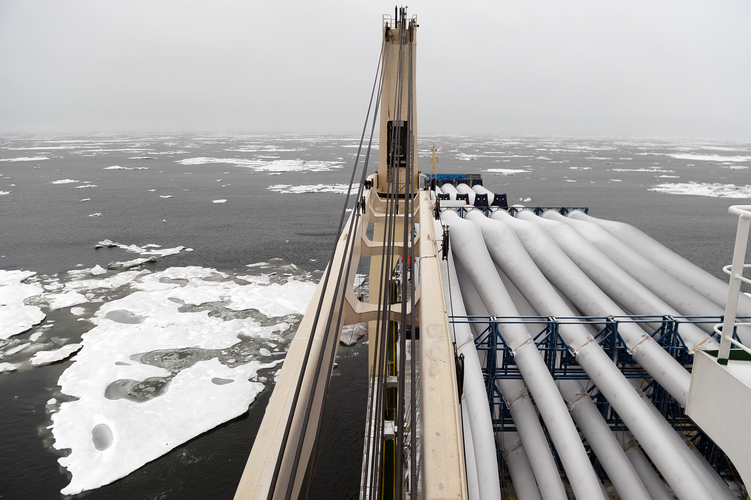
Photo: A Chinese ice-class cargo ship crossed the Bering Strait on August 17, 2018, starting its maiden voyage in the Arctic's Northeast Passage, a waterway known as the "Polar Silk Road." (Xinhua/Liu Hongxia)
China published a white paper on its Arctic policy in January 2018, pledging cooperative governance and elaborating its vision for a "Polar Silk Road".
"China, as a responsible major country, is ready to cooperate with all relevant parties to seize the historic opportunity in the development of the Arctic, to address the challenges brought by the changes in the region," said the white paper issued by the State Council Information Office.
The country would like to "jointly understand, protect, develop and participate in the governance of the Arctic, and advance Arctic-related cooperation under the Belt and Road Initiative," according to the white paper.
The Silk Road Economic Belt and the 21st-century Maritime Silk Road (Belt and Road Initiative), an important cooperation initiative of China, will bring opportunities for parties concerned to jointly build a "Polar Silk Road," and facilitate connectivity and sustainable economic and social development of the Arctic, the white paper noted.
China vowed to participate in Arctic affairs in accordance with the basic principles of "respect, cooperation, win-win results and sustainability."
POLAR SILK ROAD
China hopes to work with all parties to build a "Polar Silk Road" through developing Arctic shipping routes.
Chinese enterprises are encouraged to participate in infrastructure development for these routes and conduct commercial trial voyages in line with the law for their commercial and regularized operation.
Great importance will be placed on navigation security. The country has actively conducted studies on these routes and continuously strengthened hydrographic surveys to improve navigation, security and logistics in the Arctic.
China also eyes development of oil, gas, mineral resources and other non-fossil energies, fishing and tourism in the region, jointly with Arctic states, while respecting the tradition and culture of Arctic residents, including indigenous peoples, and conserving natural environment.
The white paper promised more on scientific research and environmental protection in the Arctic.




 A single purchase
A single purchase









